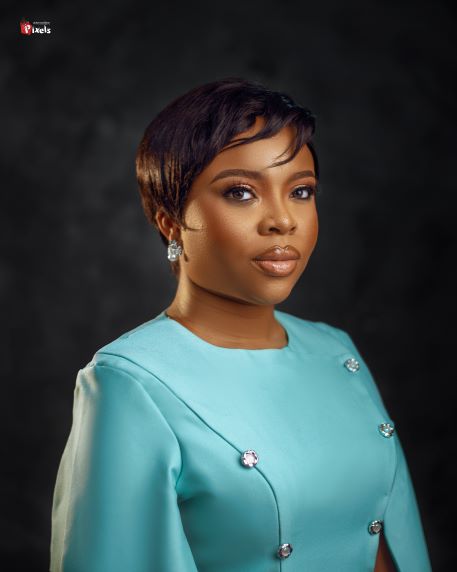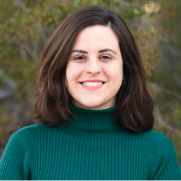Addison Kliewer did not initially plan to become a technical writer. As an undergraduate honors student majoring in English at the University of Texas, Austin, he envisioned an academic career in publishing, teaching, or even writing books. He was drawn to how storytelling can be enriching and insightful, fascinated by how clothing symbolized identity and status in classic literature like Robinson Crusoe and Gulliver’s Travels. Multiple visits to his university’s career center where he learned about technical writing, along with his parents’ guidance (two former technical writers), changed everything. It wasn’t the writing career he had originally envisioned, but the same passionate pursuit of challenging the purpose and intent behind written content continued to drive him as he proceeded to get a Master’s degree in Professional and Technical Communication.
Curious to shed more light on what transitioning from academia to industry was like for Addison, Thais and I reached out for a conversation. We met with him over Zoom, and he was incredibly welcoming and generous with his insights. He shared his journey from studying English in academia to building a career in technical writing, starting with graduate school, which provided him with unexpected training grounds. While pursuing his master’s degree, he found a job editing scientific proposals for his university. He edited documents covering a wide range of subjects, from microbiology to aviation and space studies. The experience gave him hands-on practice in technical editing and taught him how to simplify complex ideas for different readers.
He also worked as a graduate school ambassador, communicating the value, benefits and challenges of graduate school with prospective students of all backgrounds. Addison also compiled and revised various training materials for the role into a single streamlined onboarding document to help future ambassadors in their roles.
Today, Addison is a technical writer at FieldRoutes, a pest control software platform under ServiceTitan. He writes and updates documentation for pest control technicians, sales representatives, essentially anyone using the software to manage their business.
In his daily work, Addison collaborates with product managers, engineers, UX designers, and marketing teams to ensure the information he creates is accurate and useful. He applies principles from digital rhetoric, user experience (UX) design, and content strategy to his tasks of publishing updates, documenting API (Application Programming Interface) changes, and refining user guides. He seeks to challenge the traditional mold of a technical writer, focused on a content-first approach and learning from other disciplines to evolve his writing process and contributions.
For students and early-career professionals looking to break into technical writing, Addison emphasizes the importance of gaining and identifying relevant experience anywhere, even if it’s not through an official job title. Editing proposals, working at a university writing center, helping a nonprofit’s social media channels with content strategy, or conducting a content audit for a school department’s website can all be valuable. He also recommends exploring API documentation, which often requires basic coding knowledge and gaining an understanding of how software developers use documentation, UX testing, information architecture, video production, and content strategy. For students and educators trying to bridge the gap between academia and industry, Addison suggests looking for ways to collaborate on student feedback projects with alumni or local technical writing teams. Getting regular feedback on course materials from professionals can also help bridge the expectations between employers and instructors. He also encourages professors to introduce industry tools like Camtasia, Snagit, and Jira into coursework so students graduate with hands-on experience of what software companies expect.
Technical writing is evolving, and Addison sees artificial intelligence playing an increasing role. He believes technical writers will focus on becoming knowledge managers, overseeing documentation, ensuring information accuracy, and using AI tools as aides rather than relying on them entirely. He wants aspiring technical writers to understand and communicate the significance of their work. According to him, writing documentation may not seem as glamorous as publishing a novel, but it plays a crucial role in shaping how people interact with technology. A well-written guide can make the difference between a frustrated user and a satisfied one. At its core, technical writing is about making complex and challenging information accessible- and that, Addison believes, is a skill worth mastering.
Recommended Resources
Throughout his career, Addison has compiled a wealth of resources that have shaped his approach to technical writing, user experience, and digital rhetoric. Here are some of his top recommendations:
Books
Microcopy: The Complete Guide – Kinneret Yifrah
Strategic Writing for UX – Torrey Podmajersky
User Experience Research: Discover What Customers Really Want – Marty Gage and Spencer Murrell
Revising Professional Writing in Science, Technology, Business, and Social Sciences – Kathryn Riley
Technical Editing (The Allyn & Bacon Series in Technical Communication) – Carolyn D. Rude & Angela Eaton
White Space Is Not Your Enemy: A Beginner’s Guide to Communicating Visually Through Graphic, Web & Multimedia Design – Rebecca Hagen & Kim Golombisky
Content Strategy for the Web – Kristina Halvorson and Melissa Rach
Content Strategy: Connecting the Dots Between Business, Brand, and Benefits – Rahel Bailie & Noz Urbina
Content Audits and Inventories: A Handbook – Paula Ladenburg Land
SEO for Everyone – Rebekah Baggs & Chris Corak
Developing Technical Training: A Structured Approach for Developing Classroom and Computer-Based Instructional Materials – Ruth Clark
Grip: The Art of Working Smart (And Getting to What Matters Most) – Rick Pastoor
Conferences & Communities
Write the Docs (Portland) – Industry-focused technical writing conference
LavaCon – Conference on content strategy and technical communication
Button Conference – UX writing-focused conference
Online Courses & Learning Resources
Technical Writing: Quick Start Guides – Leslie O’Flahavan (LinkedIn Learning)
Camtasia Learning Courses – (Available on LinkedIn Learning)
Writing in Plain English – (LinkedIn Learning course)
Podcasts
The Not Boring Technical Writer Podcast
Inside TechComm – Hosted by Zora Mutabana
I’d Rather Be Writing Podcast – Hosted by Tom Johnson
Writers in Tech
Writers of Silicon Valley
The Content Strategy Podcast
The Content Strategy Insights Podcast
The Career Tools Podcast
Other General Resources
Technical Writers HQ – Online resource and YouTube channel
Copolios – UX design portfolio inspiration platform
UX Writing Hub – Educational platform for UX writing
MadCap Flare – Software for technical documentation (offers a free trial)



1 Comment
You rock!!!